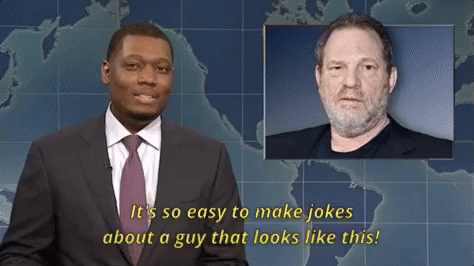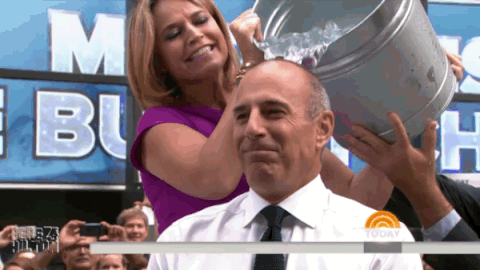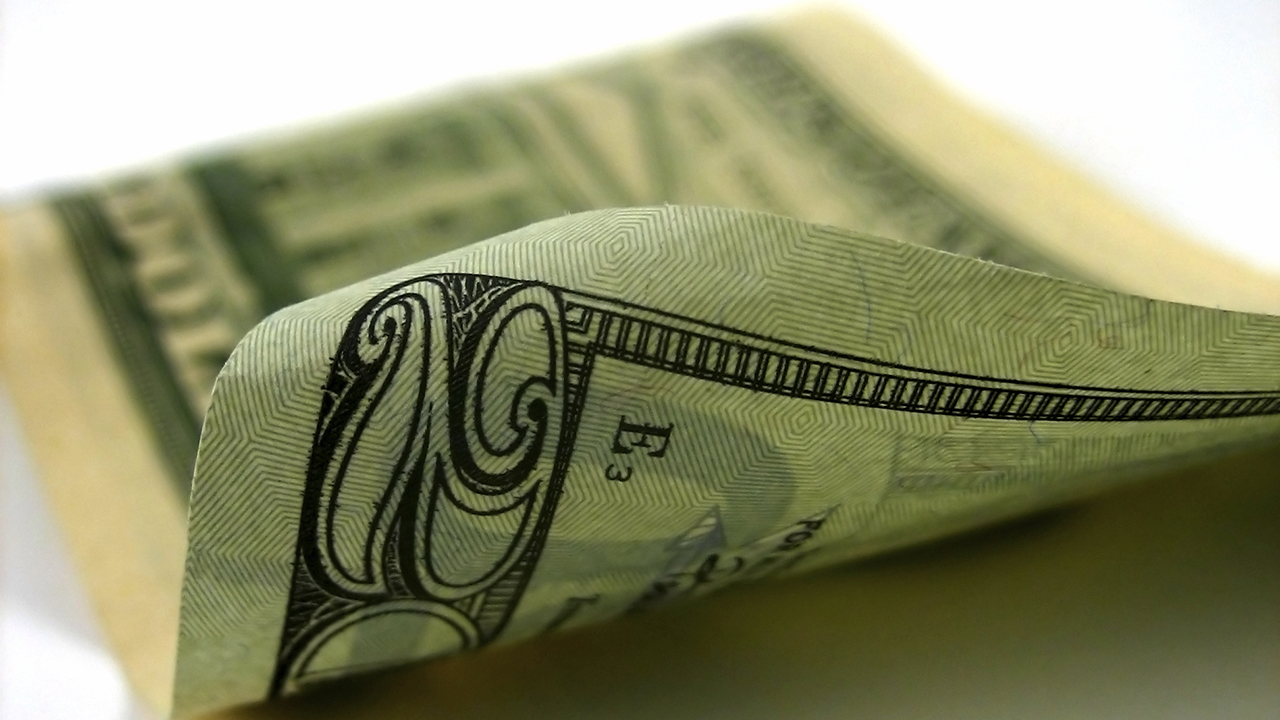Abortion rights, women of color, and LGBTQIA+ people are under attack. Pledge to join us in fighting for gender justice.
#MeToo, “Ivory Tower” Edition

What’s the first thing that comes to mind when someone mentions the #MeToo movement? Do you think of this guy?

Or how about this guy?

Sure, the #MeToo movement is often discussed in the context of high profile takedowns of men in powerful entertainment and media positions, but lately there has been increased attention to the effects of workplace sexual harassment on women workers across a range of other industries, including restaurants, hospitality services in hotels and casinos, and agriculture. These industries are mostly comprised of low-wage jobs that disproportionately employ women and women of color. Among other factors, a gaping disparity in pay and power makes these environments ripe for sexual harassment, which is in many cases an expression of gendered power.
This power and pay disparity is also present in higher education, which also boasts a hierarchical environment where undergraduates, graduate students, and female faculty are particularly vulnerable to male colleagues, professors, and administrators. Sexual harassment in higher education can occur in (but is not limited to) the private spaces of office hours, isolated science labs, study groups, academic conferences, or in communal spaces like the gym or dining hall. It can turn relationships between advisors and graduate students toxic. It can also make contingent faculty, who already work for low pay without job security, feel even more isolated and exploited. The need for mentorship and individual learning can be a breeding ground for predatory behavior, and, what makes matters worse is that the folks on the receiving end of sexual harassment often depend on the harasser for something, whether that’s a passing grade, a recommendation letter, or a sign-off on a major milestone like a thesis or dissertation.
We have a clearer picture of what sexual harassment in higher education looks like, thanks to a crowdsourced spreadsheet was created by a trusted voice in higher education on December 1, 2017, which highlights the pervasive nature of sexual harassment at universities in America (it’s very similar to the “shitty media men” spreadsheet that went viral last October). In a little over 4 months, there have been 2,432 entries posted anonymously to this shared document—the most recent post from March 13, 2018. And the list keeps growing.
The spreadsheet asks survivors and bystanders to share what happened and where alongside other information like the name of the department or university, the status of the harasser (i.e., tenure track professor, classmate, administrator), the type of institution (i.e., Research 1, Ivy League, community college), and the gender of the harasser.
But, perhaps even more revealing are the columns provided for survivors and bystanders to share institutional responses to the harassment, ranging from total inaction to firing the harasser. There is also space to document the impact of sexual harassment on the career trajectory and mental health of the survivor, which is critical for gaining a more holistic understanding of the short- and long-term effects of sexual harassment on nearly every aspect of people’s lives.
Some survivors report closing themselves off to networking opportunities, no longer going to office hours for help, or feeling hesitant to work with male classmates or colleagues. Some noted that their experiences caused stress, anxiety, depression, fear, and self-doubt. Others noted that they found it difficult to pursue graduate school because they relied on recommendation letters for acceptance. Some dropped out of doctoral programs altogether or moved to lesser institutions to escape their harasser. One survivor said the experience made her feel like the professors in her field only saw her as “a piece of ass, not an emerging scholar.” Others reported PTSD, suicidal thoughts, addiction, and other effects that were so traumatic they were “impossible to assess.”
What’s clear is that sexual harassment in higher education dramatically shapes women’s experiences and negatively impacts their outcomes. Reporting sexual harassment makes women vulnerable to retaliation (hence the anonymous spreadsheet), and fear of getting a bad reputation, being left out of opportunities, or losing one’s job also negatively impact women’s economic safety.
It’s time to reckon with the abuses of power that have been happening in higher education for decades, even if it means firing big-name scholars who have written important books or written grants that bring in money to the university–and even if it means the university getting some bad press in the process. The walls protecting these so-called “ivory towers” aren’t tall enough to stop #MeToo.



